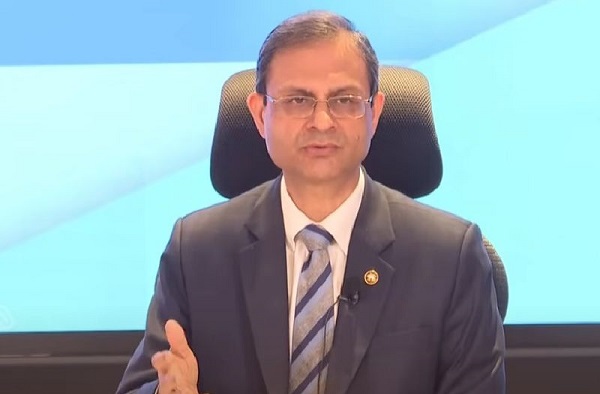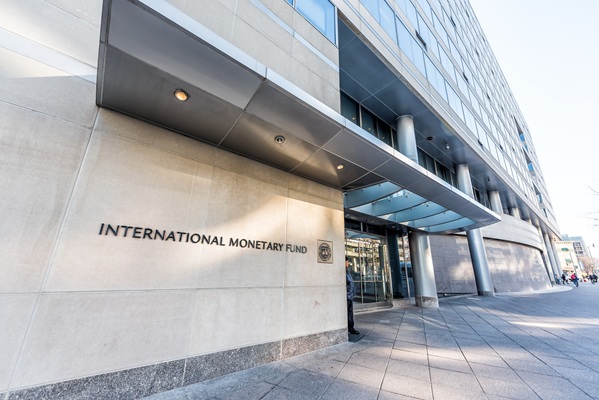.png)

By Kirti Tarang Pande
Kirti Tarang Pande is a psychologist, researcher, and brand strategist specialising in the intersection of mental health, societal resilience, and organisational behaviour.
October 2, 2025 at 8:15 AM IST
There’s a story we tell ourselves in business, one that draws a clean line between the hard numbers of a balance sheet and the soft qualities of human flourishing. We label one “profit” and the other “morality.” We relegate one to the boardroom and the other to the prayer room, treating them as separate domains governed by different laws. But what if this story is the most costly lie we’ve ever believed? What if the most powerful, underutilised profit driver in your company isn’t financial, but psychological?
This Gandhi Jayanti, let’s dismantle this false dichotomy and consider a radical, evidence-based narrative: Gandhi was not a cost center. Neither is the truth. We need to retire the idea that Satyagraha was merely moral force and see it for what it was: the most sophisticated strategy India ever produced. He understood then what psychology proves now: that truth compounds faster than interest. In the long run, truth doesn’t just build character; it builds empires, topples monopolies, and compounds wealth in ways corporate spin never can. Truth isn’t a “nice-to-have” moral luxury but the psychological engine of flourishing. Truth isn’t about being good; it’s about being smart; because truth drives innovation and resilience.
Kahlil Gibran once wrote, “Love knows not its own depth until the hour of separation.” The same goes for truth: to fully grasp its power, we need to examine a world without it. Remember the Satyam scandal? It was a moment of collective trauma in Indian business. The news in 2009 wasn’t just numbers on a screen; it was the sound of 50,000 livelihoods gasping for air as over $2.2 billion in market value evaporated. This was not a simple business failure; it was a psychological catastrophe. For years, some of the country’s brightest minds—engineers, accountants, managers—were not innovating for the future but exhausting themselves to maintain an elaborate lie. This is cognitive dissonance on an organisational scale: the profound stress of sustaining two realities— the public illusion of success and the private truth of a crumbling foundation. This dissonance isn’t just uncomfortable; it’s paralysing. A culture of lies is a tax on a company's IQ, innovation and resilience.
And Satyam was not isolated. The collapse of Kingfisher Airlines was not merely financial mismanagement but a slow unraveling of collective belief. It began with the psychology of spectacle. Brand Kingfisher was a carefully cultivated illusion of fun and glamour that created cognitive dissonance between image and reality. While the brand projected exhilaration, employees faced mounting anxiety, unpaid dues, and a creeping sense of betrayal.
When trust is repeatedly violated through hidden debts, opaque communication, and denial, the psychological contract between leaders and stakeholders fractures. What followed was not just economic collapse but a contagion of disillusionment. Bankers felt deceived, employees internalised hopelessness, and customers witnessed the erosion of credibility. The annihilation here was not just of capital but of belonging, dignity, and social cohesion.
Such collapses reveal a deeper truth: dishonesty corrodes identity itself. Once leaders exile truth from the boardroom, they don’t just risk financial implosion but induce learned helplessness, where those who trusted feel both powerless and complicit. Kingfisher’s downfall is less flawed economics than psychological bankruptcy—a chilling reminder that when illusions replace honesty, the market doesn’t just punish; it condemns.
Trust and Power
Similarly, Infosys pioneered corporate governance by opening its books with a transparency that stunned global investors. But why is that trust so profitable?
It’s not just reputation; it’s psychology. Infosys and TCS created cognitive ease: employees weren’t wasting energy navigating politics or spin. That freed capacity for innovation and problem-solving—the silent engine behind India’s IT rise. Truth is not soft power; it is brainpower freed for profit. This is what powered TCS into a global titan and generated shareholder returns compounding at 18% annually for 17 years.
From Bangalore to California, the principle holds: truth is the raw material of trust, and trust is the currency of growth. Patagonia exemplifies this—not as branding, but as strategy. By opening its supply chain to scrutiny and turning profits into public commitments for the environment, it reduces the ambient suspicion that corrodes most corporate promises. The brand does not ask stakeholders to filter for spin; it makes honesty part of its architecture.
When organisations lack transparency, the brain treats it as a threat. Employees, investors, and consumers waste neurological energy scanning for deception. Creativity shrinks, focus narrows, motivation erodes. But when leaders build cultures of honesty, threat circuits quiet down, freeing bandwidth for innovation, while reward systems fuel loyalty and belonging. In other words, clear truth-telling isn’t just ethical leadership; it’s neuroeconomics: it saves brain fuel and reinvests it directly into performance, resilience, and growth.
Truth and Advantage
This advantage is now the battleground for the next generation of Indian wealth, from corporate giants to disruptive innovators. Take Foodpharmer, for instance. Revant Himatsingka didn’t beat FMCG giants with a bigger budget; he out-psychologised them. His “Label Padhega India” campaign tapped into a craving for honesty, turning consumer skepticism into community—the digital Salt March of our times.
In a market of spin, radical honesty is the ultimate disruption. This strategy is sustainable because it rests on human nature: people gravitate toward what empowers and eventually rebel against what deceives.
This is where the highest form of cognitive functioning—what psychologist Klaus Riegel called dialectical thinking—becomes a critical business imperative. Dialectical thinking is the “wisdom” stage beyond simple logic; it involves actively holding opposing ideas, perspectives, and data points, and struggling to integrate them into a higher, more complex truth. In your boardroom, this is the daily practice of actively seeking out the dissenting voice, the contradictory data, the junior executive who points out the fatal flaw in your pet project. It requires creating a “non-violent” space, in the Gandhian sense, where truth can be spoken without fear of retribution. The most courageous words in business are: “I was wrong. Tell me more.” It takes a secure and psychologically astute leader to understand that this friction is not a threat to their authority, but the very source of their organisation’s intelligence and resilience.
The choice before you is no longer between being good and being profitable. That dichotomy is obsolete. The real choice is between two operating systems. One is a system of cognitive taxation and dissonance, exemplified by the ghost towns of Satyam and Kingfisher, where human potential is systematically sacrificed at the altar of a convenient lie. The other is a system of cognitive liberation and congruence, as practiced by TCS and Foodpharmer, where the human mind is freed from the burden of spin to imagine, build, and connect. Your balance sheet has a line item for wasted human potential. You just can't see it yet. It’s reflected in the projects that never launched, the ideas that were never voiced, and the top talent who left not for a better salary, but for their sanity.
The future won’t belong to the biggest company, but to the most trusted one.




